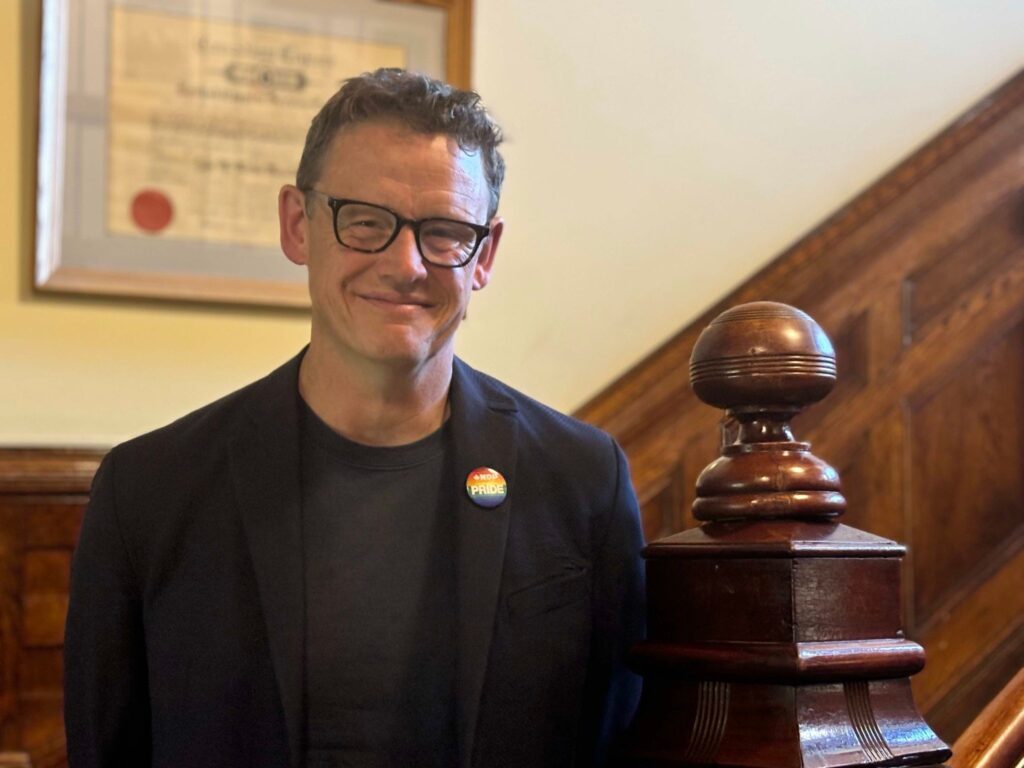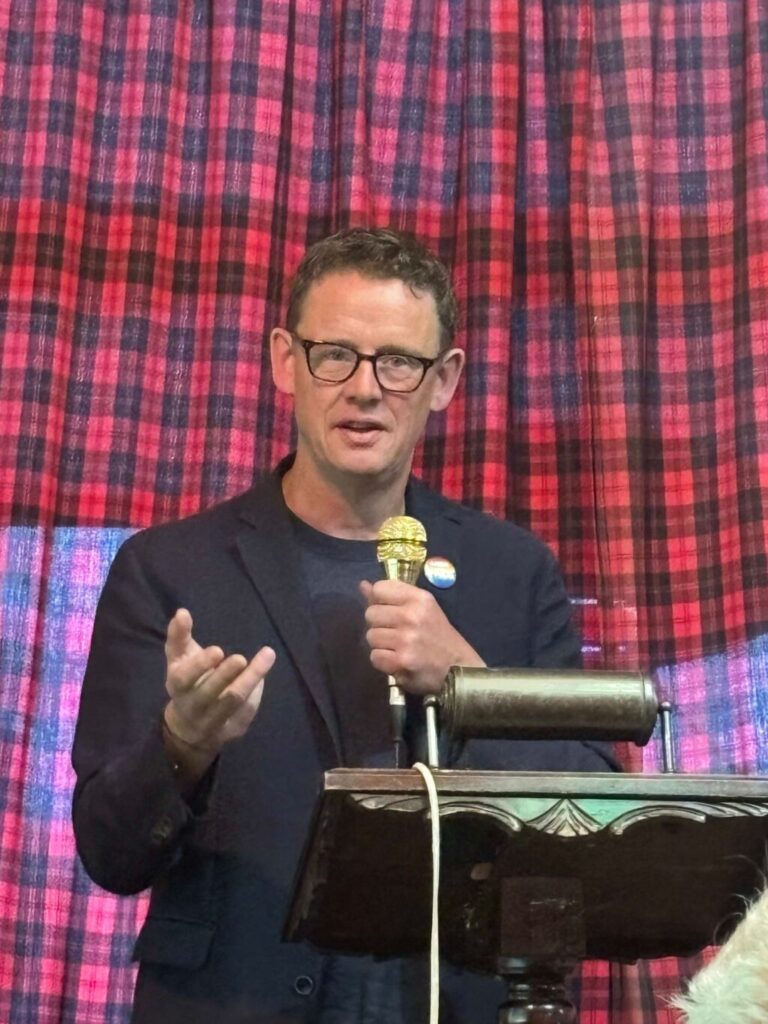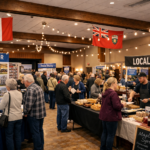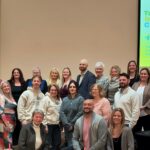
Yesterday, I had the opportunity to sit down with Joel Harden, Member of Provincial Parliament for Ottawa Centre, while he was in Cornwall to give a talk about the meaning of freedom. We explored his thoughts on balancing activism with political leadership, the risks posed by privatization, and the NDP’s vision for a more just and equitable society. With his extensive background in both activism and politics, Joel shared profound insights into how these areas shape his work and inform his approach to leadership.
This interview has been edited for length and clarity.
As an MPP, and as an NDP representative, how do you balance activism with political leadership?
So, my whole life, one has informed the other. I’ve had this job for six years. A lot of my core values over the course of my 52 years of life have been shaped by experiences I’ve had that often coincide with my activism.
So here we are, in a Legion. I was raised in a little town called Vankleek Hill and taken to the Legion often by my grandfather, who was a veteran. He would often remind me of the importance of acknowledging not just the sacrifices of the past but the work the Legion continues to do in the community to help families out.
Because – what I was blind to as a kid – I think, were the number of families, even when I grew up in the seventies and eighties, who were really suffering in our town. I was always reminded of the importance of the legion’s activism and their advocacy in my little town. Suffice it to say, I’m someone who learns as much from doing as from reading, and the experience of working with people to make change has always been a very profound thing for me. It helps me understand the right thing to do in whatever moment we’re in.
What freedoms do we take for granted that are currently at risk due to underfunding, cuts, or privatization, and how does this impact everyday Canadians?
Here we are in the Legion, where generations of people sacrificed a great deal for our freedoms. And we have one day a year, on November 11, where we will remember that. But I think we should be remembering it every day.

Two summers ago, I had the occasion to go with my family to Juno Beach in France. That was where my grandfather landed five days after D-Day. I mean, it wasn’t D-Day itself, but what my grandfather saw on that day were things he would never talk to me about, horrors that generations of Canadians experienced for the freedom that we have.
And that takes me to the next freedom that I think is really important… And that is the freedom to express ourselves, to ask questions without intimidation or feeling like we are going to be shut down, that we won’t be allowed to say what’s on our mind, that we won’t listen to others. Instead, we prejudge people without understanding where they’re coming from. That kind of freedom of expression and equal dialogue is really important in this day and age when there is so much misinformation, there is so much animosity that gets ripped up online very quickly.
When human beings are talking to each other, it happens much less often. But out there in that online space, we are dealing with a major mental health crisis in our communities because people are feeling stressed out or angry.
Using the freedoms we have from the generations that fought for them, we can build our country up instead of tearing it apart.
Speaking of the disconnect, like the one we see on social media where the right is far right, and the left is further left than ever, how can the NDP bridge that gap? What can you do to bring all Canadians together?
Someone who was a big inspiration to me back home is now gone. Elder Albert Dumont had a slogan that he impressed on all politicians in our city – which is “Healing begins now.” It doesn’t begin later. We can use our platforms, whether we are politicians or business owners or just citizens, right?
We can use our platforms to yell at people, to rip them down, to call them names, or we can use our platforms to heal some of the rifts in our community that I feel, in many cases, are getting worse. Some of our leaders in our communities at local, provincial and national levels, are actively making that worse. So when I think about the advice I got from Albert, I take it to heart.
I’m a passionate man. I make no apologies for being a passionate man. I think it’s important to be driven by your passion. But I never, ever want to dehumanize other people. The MPP for this area, Nolan Quinn is someone I get along with very well on an interpersonal level. We don’t agree on a lot of things, but we can still treat each other like human beings.
How does the NDP’s vision for health care differ from the current provincial government’s approach, and why is it important for the community to understand the dangers of privatization?
So we are THE party -and I’m thinking about our grandfather, Tommy Douglas from Saskatchewan – that brought the idea of public medicare into politics. Tommy got the idea of public medicare from the community in Saskatchewan. This is a place where people have had to survive through cooperation and collaboration, trying to attract doctors to small, rural farming communities. Those circles of mutual aid are where our public medical system ultimately came from. New Democrats have never been satisfied with public access hospitals or public access family medical clinics. We see a vision of head-to-toe health care, where dental care is included, optometry is included, and mental health is included. We see, you know, dermatology, so many professionals that people often must pay for out of pocket. We see it as part of a more extensive healthcare system. But what you asked with respect to privatization? That’s the disagreement we have with the Conservatives at the provincial level, and with the Liberals at the federal level. Both of those parties have been happy to have a significant amount of our health care system open to private for-profit agencies, some of which are now paid by our public system, to do something we could do in-house a lot more affordably. So this is the source of our disagreement. And we, as New Democrats, make no bones about how we’re going to pay for it. We’re going to ask people who are better off, frankly, like me– my wife is a physician, we make good incomes, both of us–we are happy to pay more in tax if it means someone can get a family doctor, if it means someone can get eyeglasses, if it means someone can get mental health care when they’re in crisis, not in six months, not in twelve months when their problem could be worse or when they’re self-harming, perhaps, or harming others. We want people to get prompt health care that they can get right away. But that won’t come from thin air. It will come from those of us who can pay more.
Can you share some NDP success stories or initiatives that highlight the party’s commitment to social justice, economic equality, and a sustainable future?
Well, can I talk about one that’s not NDP per se, but it’s local. We have a program called Counseling Connect in Ottawa. I guess there’s an indirect link to the NDP. It comes from our community health care centers. You have one in Cornwall, right? So, we have seven that serve Ottawa, and one of them the Pinecrest-Queensway Community Health Centre, set up this network. Their executive director, Tamara Chipperfield, worked with her team, and they set up a network between all the mental health agencies. And there are many, and they’re mostly small that exists across the full city. What they did is they created a one-path referral service through one of our big agencies, the Services Bureau that often works with homeless youth or youth in trouble, youth at risk. And through that entry point, by phone or by email, people can get access to urgent psychotherapy for mental health crises, like if you’re in self-harm to yourself or others, within 48 hours. That’s an achievement! It helps 700 people a month right now. It does it on a budget of $600000 a year. And our pitch to the four governments was that we could double this, we could triple this, we could quadruple this and help so many more people, because we’re just at the tip of the iceberg. It operates in five different languages. There are indigenous groups that are involved. We need more of that. We don’t have to deal with a system that keeps falling apart. We can improve.
What is freedom to you?
Freedom is the ability to participate, the ability to contribute, and the ability to be your best self. It’s not just protection from discrimination. It’s not just about what me, myself and I want. That’s a very simplistic version of freedom that has existed for a long time. New Democrats believe in a version of freedom where we see everybody be able to become the amazing person they are. And everybody’s going to need different levels of support for that, and for that to happen. As I said earlier, those of us with the means are going to have to contribute more. There’s no easy way to this, but my history of this country, in a nutshell, is with more collaboration and more compassion, we have a better economy, and a better society.
My main takeaway from my time with Joel Harden and from hearing him speak is that we live in a world where politicians increasingly resort to distraction and voter suppression tactics. A striking example is Donald Trump’s outlandish claim that people in Ohio eat cats and dogs—a statement designed to shock and divert attention. While we are rightfully outraged by such preposterous rhetoric, it pulls our focus away from real issues like economic inequality, health care, and social justice. And it’s not just happening in the U.S. These tactics are creeping into Canada as well, leaving us with the responsibility to stay engaged and push back against the noise so we can address the real challenges our communities face. Let’s keep our eyes on the ball.













